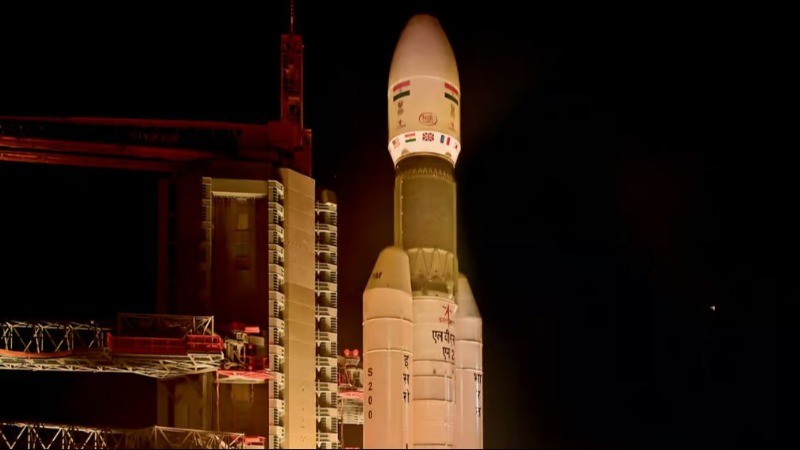
India is focusing on a strategic approach to enter the commercial space market by utilizing data, building small satellites, and launching them at low cost. Rather than competing directly with major players like SpaceX, the country aims to offer affordable services to industries such as communications, agriculture, and commodities, where high-quality space data is crucial.
The global launch market is projected to reach $14.54 billion by 2031, while the space data services market is expected to grow to $45 billion by 2030. "Satellites have shrunk from the size of a Boeing plane to the size of a laptop," said AK Bhatt, director general of the Indian Space Association. He emphasized that India has an edge in data mining and interpretation, positioning it to succeed in this sector instead of competing with large-scale launches dominated by companies like Elon Musk's SpaceX.
Since February, India's space sector has been opened to private companies, and a venture fund worth 10 billion rupees ($119 million) was created to support space startups. While India is also working on crewed space exploration and a Venus mission, the main focus remains on commercial opportunities.
Despite India's growing space capabilities, competition remains tough as countries like Japan and China have advanced space industries. Spaceflight itself is a challenging arena with many global startups failing due to technical issues.
Namrata Goswami, a space policy expert, said India has the technical ability but needs more proof of concept to solidify its place in the market. She added that the Indian government must act as a key customer to support private industries.
According to Pawan Goenka, chairman of IN-SPACe, most of the expected revenue growth will come from downstream data applications. These involve processing data from space to improve navigation, boost telecommunications, enhance crop yields, and address climate change and security concerns.
Indian companies like Bellatrix Aerospace, Pixxel, Agnikul Cosmos, and Dhruva Space are already building or launching small satellites and components. ISRO recently completed the final developmental flight for its Small Satellite Launch Vehicle, which will soon be handed over to private companies.
"The uses of Earth observation are vast," Goenka said. For example, Bengaluru-based SatSure provides real-time satellite data to the Airports Authority of India, improving air traffic management. This initiative is expected to save airlines 37.5 billion rupees ($446 million) annually in fuel costs by 2025 and reduce airport planning timelines by 70%.
Earth observation satellites are also proving valuable across various sectors. "EO is solving problems across utilities, industries, and navigation, saving millions of dollars," said Prateep Basu, CEO of SatSure.
Since the space sector opened up, both large and small companies have entered the market. Established IT firms like Infosys have invested in satellite imaging, while companies like Pixxel and Dhruva Space have signed contracts and obtained permits for satellite communication centers.
Aravind Ravichandran, founder of advisory firm Terrawatch Space, said that India's strengths in software, data science, and artificial intelligence will play a significant role in the downstream space market.
According to Euroconsult, around 26,104 small satellites are expected to be launched between 2023 and 2032, and the small satellite industry is projected to reach $110.5 billion over the next decade.
Indian space companies attracted $126 million in funding in 2023, a significant rise from previous years. However, India still holds only about 2% of the global commercial space market. For India's solutions to make a global impact, they will need to scale across South Asia and beyond, said Awais Ahmed, CEO of Pixxel.